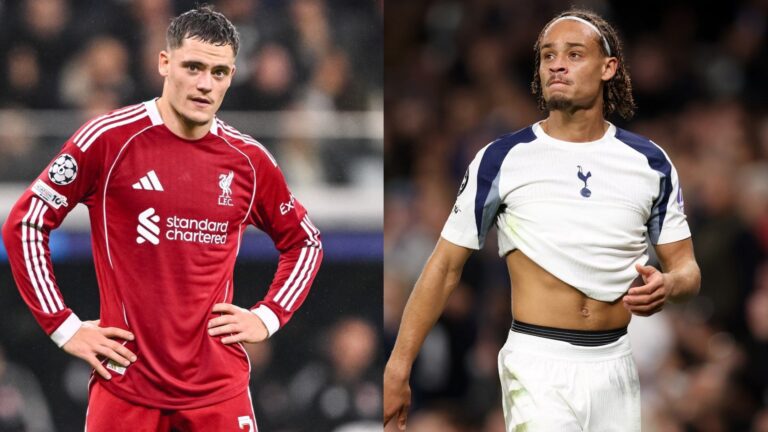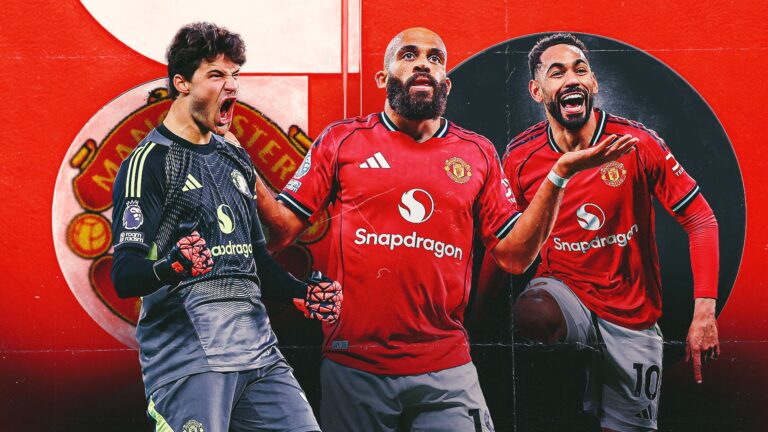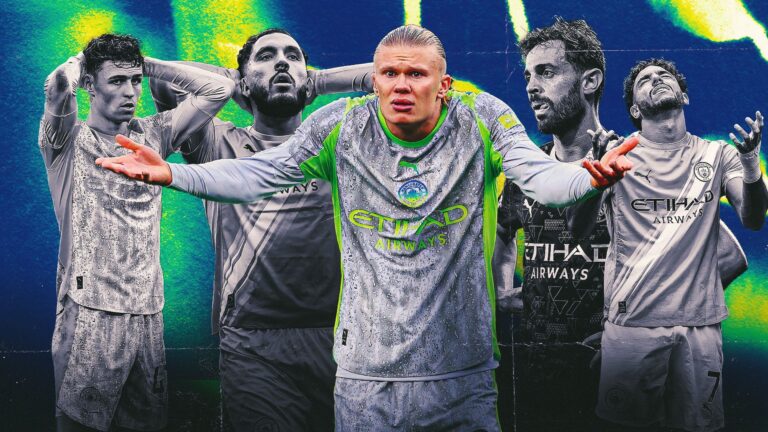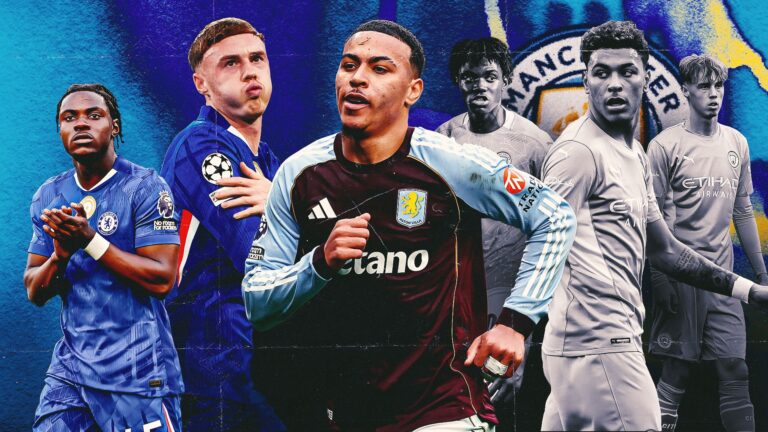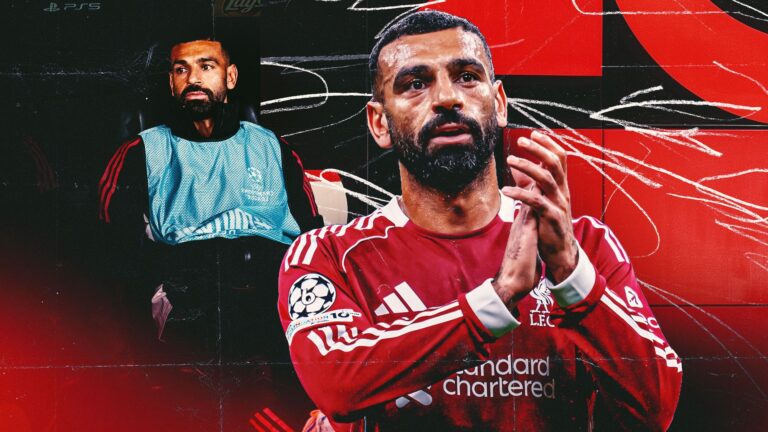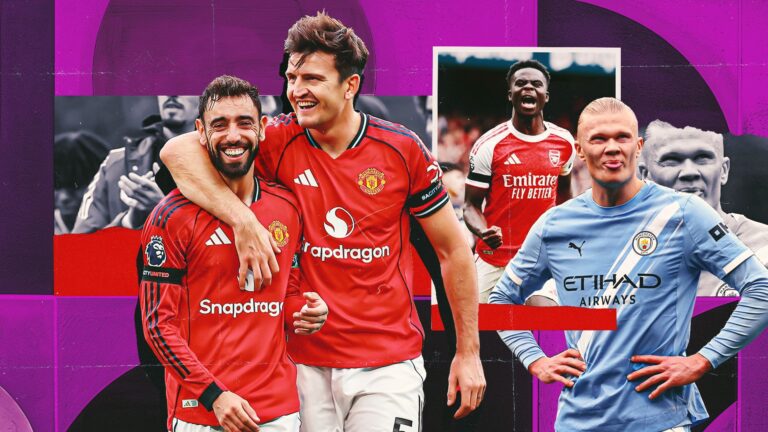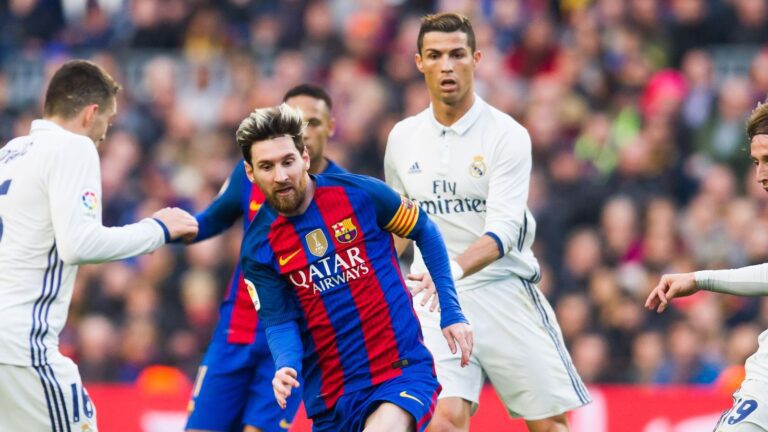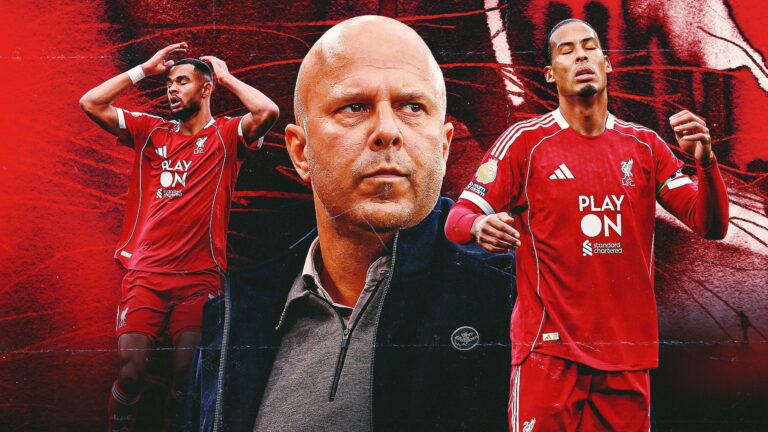Why Tuchel’s Oversight of Grealish Could Undermine England’s World Cup Aspirations
The recent England squad selection for October has sparked significant debate, particularly over the exclusion of key stars like Jack Grealish and the rationale behind coach Thomas Tuchel‘s choices. While the spotlight has been on players returning from injury, Grealish’s impressive resurgence at Everton raises questions about whether this decision might leave England’s left-wing vulnerable as the 2026 World Cup approaches in just eight months.
Tuchel’s Choices for the Squad and Their Rationale
Although much of the backlash from the October team reveal focused on leaving out Jude Bellingham and Phil Foden, Tuchel has solid grounds for those omissions. Bellingham is just easing back into play at Real Madrid following shoulder surgery recovery, and Foden, at 25, has regained momentum at Manchester City after a tough 2024-25 season, yet he’s not fully recapturing the form that earned him the PFA Player of the Year title 18 months prior and still requires additional motivation to shine consistently for England.
In contrast, Grealish presents a compelling alternative. He has delivered four assists in his initial five Premier League outings for Everton and stood out in their 1-1 stalemate against West Ham on September 29, amassing four crucial passes despite the team’s subpar performance overall. This effort pushed his season total to 19 key passes, topping the league standings after six games.
Grealish’s Potential Role in Upcoming Matches
It seemed obvious that Grealish would be among the 24 players selected for England’s friendly versus Wales and their World Cup qualifier against Latvia. Tuchel opted differently but left the possibility open for Grealish ahead of the summer’s World Cup, stating, “There is always a path back to the squad.” He added, “Jack is aware that I recognize his impact at Everton and that he’s progressing toward his peak performance.”
This stance might be acceptable with more time, but with the North American tournament looming in eight months, Tuchel is short on opportunities to finalize his ideal lineup. By bypassing another evaluation of Grealish’s distinctive abilities, he’s neglecting a persistent weakness on England’s left side.







Grealish’s Resilience and Recent Highlights
To Grealish’s credit, the exclusion hasn’t deterred him. The Everton standout delivered an exceptional all-around effort on Sunday, helping David Moyes’ team break Crystal Palace’s 19-game unbeaten streak across all competitions at the Hill Dickinson Stadium.
Key Moments in the Crystal Palace Clash
The game appeared headed for a draw after Iliman Ndiaye equalized from a penalty, canceling Daniel Munoz’s early goal. Yet, in the third minute of added time, Grealish stepped up in the penalty area to net a thrilling winner for Everton, celebrating with an energetic knee slide before the home supporters. The goal wasn’t flawless-stemming from Munoz’s errant clearance that Grealish deftly turned in-but it highlighted his persistence and cleverness throughout the match.
Grealish earned the Player of the Match accolade for the third time this season and used his post-game comments to demonstrate maturity. Speaking to BBC Radio 5 Live, he noted, “It’s not as serious as some make it out to be. Of course, everyone wants to represent the national side, but others are performing well in my role. I’m doing fine too, and the selected players excelled in their recent games, so I’m okay with it. It’s the manager’s call, and I respect that.”
The Evolution of Grealish’s Career and Its Implications
Grealish further explained, “My focus is on Everton since they’ve shown faith in me, and I’m thoroughly enjoying it.” After facing limitations under Pep Guardiola at Manchester City, where he was urged to curb his natural flair, Moyes is empowering him to play freely, boosting Everton to eighth in the Premier League, just five points from Arsenal at the top.
How Grealish Could Transform England’s Attack
It’s straightforward to envision Grealish replicating this influence for England. Elite squads require individuals who can dismantle compact defenses and secure fouls in threatening zones, qualities Grealish is displaying now and that could have been vital for the Three Lions at Euro 2024, where the attack lacked creativity.
As former England player Danny Murphy commented on Match of the Day, “In tough spots, you need your top talents to take control and show courage, and he’s elite. You could see the shift in the second half against Palace-he was powerful, in shape, and clearly content.” Murphy continued, “He’s got that confident swagger we’ve seen before, which motivates his teammates. Performing at this caliber, he’ll draw Tuchel’s attention eventually. He’s holding steady at this level, and it’s almost certain to happen.”
Tuchel’s Preferences and the Competition for Spots
Unfortunately, Murphy’s optimism might not hold. Grealish ought to be a lock if he maintains this pace, but Tuchel seems to favor players already aligned with his tactics from prior call-ups.
Analyzing the Current Forward Lineup
From the seven attackers in the latest squad, Harry Kane stands as the unquestioned choice, with Ollie Watkins, who’s struggling at Aston Villa, selected as backup mainly due to limited striker options. Jarrod Bowen merited inclusion with his three goals this season despite West Ham’s difficulties, and Arsenal’s Bukayo Saka and Eberechi Eze were predictable picks as they gain momentum.
Anthony Gordon secured his spot again despite uneven form at Newcastle, thanks to his standout play in the Champions League against Union Saint-Gilloise and earlier in England’s qualifier versus Serbia. Marcus Rashford impressed as a substitute in that 5-0 win and has notched eight goal involvements this season at Barcelona.
Grealish’s Rivals on the Left
Eze excels as a left-winger but thrives more centrally, as evident in the 2-0 victory over Andorra. Thus, Grealish’s chief competitors on the flank are likely Gordon and Rashford, who don’t quite match his tactical awareness. Noni Madueke and Cole Palmer can adapt to the left, but it’s not their strongest position, making Grealish the superior option-if Tuchel recognizes it soon, England might avoid repeating their offensive woes from the Euros.
Previous Performances and Future Risks
Eze and Gordon featured at Euro 2024 but saw limited action under Gareth Southgate’s conservative approach, which hindered their effectiveness. Tuchel promises a bolder strategy, yet relying on Gordon and Rashford on the left could struggle against defensive teams.
Rashford’s Inconsistency and Gordon’s Potential
Gordon has yet to prove himself at the elite level, and Rashford is known for his ups and downs, potentially faltering under pressure. At Barcelona, Rashford is showing promise, but the hype exceeds his one goal in eight La Liga games, and Hansi Flick’s team has dipped overall since his arrival. If Rashford falters, as history indicates he might, Tuchel would be unwise to ignore Grealish without testing him first.
Tuchel can review Grealish’s last England appearance against Finland in the Nations League nearly a year ago, where he scored in a 3-1 win by making a brilliant run to finish Angel Gomes’ pass. In a 4-2-3-1 setup with Bellingham and Palmer, Grealish was the standout, completing 56 of 58 passes in a performance interim coach Lee Carsley called “outstanding.” At his finest, he’s a visionary playmaker with the experience of a Manchester City treble winner.
Addressing Grealish’s Goal-Scoring and Development
The only gap in his game is scoring; that Finland goal was just his fourth in 39 caps, and he scored once in the Premier League for City last season from seven starts. Grealish was more prolific at Aston Villa, but Guardiola discouraged risks. Ahead of the Palace game, he’d only attempted two open-play shots this season, prompting Moyes to challenge him.
Moyes’ Guidance and Grealish’s Response
“I want him shooting more and positioning for goals,” Moyes said. “His assists are strong, but he needs to contribute on the scoreboard, finding space at the far post. He creates opportunities but hesitates if he thinks it’ll be blocked. His shooting is excellent-he has power and precision-so there’s no excuse not to try.” Grealish responded with three shots on target against Palace, and if he keeps it up, his goals will flow, making it impossible for Tuchel to overlook him.
The Race Against Time for Grealish
With 248 days until the World Cup, Grealish must solidify his case as England’s primary left-winger, though he’s ineligible against Manchester City in Everton’s next fixture. Moyes can utilize him against Tottenham on October 26, and another strong display could amplify demands for his return in the November qualifiers versus Serbia and Albania.
The Challenge of Breaking Into Tuchel’s Plans
However, Grealish faces a tough fight, as Tuchel tends to maintain his current setup. “We’ve hit new heights in the last camp,” Tuchel explained. “It was evident in the Serbia match. If the players are fit, why change? They’ve established the bar, and now it’s about solidifying it, focusing on what we’ve built rather than individuals.”
This implies Grealish needs his rivals to slip for a chance. Players like Watkins, Morgan Gibbs-White, Myles Lewis-Skelly, and Morgan Rogers held spots despite underperforming, frustrating talents like Grealish, Adam Wharton, and Foden. Tuchel should experiment now, as rigidity will grow as the tournament nears. Mere persistence won’t suffice for Grealish; he must dominate to secure his place, potentially shaping England’s World Cup success.
Assessing the Risks of Thomas Tuchel’s Exclusion of Jack Grealish
Thomas Tuchel’s decision to exclude Jack Grealish from key England squads has stirred up plenty of debate among football fans and pundits alike. As England gears up for the 2026 World Cup, this move raises serious questions about team balance and long-term success. Grealish, known for his dribbling wizardry and creative flair on the left wing, has been a fan favorite since his standout performances at Manchester City and with the national team. But with Tuchel opting for a more tactical, defense-oriented approach, we’re left wondering if this exclusion could jeopardize England’s ambitions on the global stage.
One major risk is the potential loss of creativity in England’s attacking play. Grealish’s ability to unlock defenses with his vision and ball control has been crucial in past tournaments. Without him, England’s left-wing options might lack the same dynamism, especially in high-stakes matches where breaking down compact defenses is key. Think about how Grealish’s absence could affect England’s performance against top teams like Brazil or France in 2026 – it might force reliance on less experienced players, leading to inconsistent results.
To break this down further:
- Impact on Team Morale and Depth: Excluding a player of Grealish’s caliber could affect locker room dynamics. Football is as much about psychology as it is about skill, and sidelining a star might demotivate the squad. England already faces depth issues in midfield and attack, and this decision could exacerbate that, making the team more vulnerable to injuries or form dips.
- Statistical Risks: Looking at Grealish’s stats from recent seasons, he’s averaged around 0.28 goals and 0.83 assists per 90 minutes in the Premier League. Compare that to England’s current left-wing alternatives, and you see a gap in output that could hinder scoring chances. For England’s 2026 World Cup ambitions, maintaining high offensive efficiency will be non-negotiable.
Benefits of Re-evaluating Grealish’s Role
While Tuchel’s strategy emphasizes discipline and structure, there are clear benefits to reconsidering Grealish’s exclusion. Incorporating him could enhance England’s overall attacking fluidity, making the team more adaptable in different game scenarios. For instance, his presence allows for quicker transitions from defense to attack, which has been a weak point in recent friendlies. By blending Grealish’s creativity with Tuchel’s defensive solidity, England could strike a better balance, potentially boosting their chances of lifting the World Cup trophy.
In terms of practical tips for Tuchel and the England setup, integrating Grealish might involve focused training sessions on positional discipline. This could include:
- Drills that emphasize quick decision-making in the final third, helping Grealish align with Tuchel’s high-press system.
- Rotational strategies where Grealish shares minutes with other wingers, reducing fatigue and maintaining squad harmony.
- Video analysis sessions to review how Grealish’s style complements players like Harry Kane, creating more space and opportunities up front.
The Case for Addressing England’s Left-Wing Challenge
The left-wing position has long been a challenge for England, and Thomas Tuchel’s exclusion of Jack Grealish highlights the need for urgent solutions. With the 2026 World Cup on the horizon, ignoring this area could leave England exposed, especially in a tournament where width and pace are game-changers. Grealish’s dribbling stats – ranking in the top 10% for successful take-ons in the Premier League – show why he’s a natural fit, and his absence might force England to over-rely on players like Anthony Gordon or Marcus Rashford, who excel in different roles.
A deeper dive into case studies from past World Cups reveals patterns that underscore this risk. For example, in the 2010 World Cup, England’s left flank struggled without consistent width, contributing to their early exit. Similarly, France’s success in 2018 was partly due to their balanced attack, with players like Griezmann providing the creativity that England’s left wing currently lacks. These examples illustrate how neglecting key positions can derail even the most talented squads.
First-Hand Experience and Player Development Insights
Drawing from real-world scenarios, many coaches and former players have shared insights on managing star exclusions. Take, for instance, the experience of Gareth Southgate during Euro 2020, where he had to balance squad selection amid public scrutiny. Experts like Jamie Carragher have argued in podcasts and analyses that Grealish’s exclusion could be a missed opportunity for player development, potentially stunting England’s growth as a unit.
To address this, England could focus on targeted development programs. This might include:
- Youth Integration: Bringing in promising left-wing talents from the Under-21 squad for senior team exposure, ensuring a pipeline for 2026.
- Tactical Workshops: Sessions where players experiment with hybrid roles, like Grealish adapting to a more central position to fit Tuchel’s vision.
Ultimately, addressing the left-wing challenge means weighing the risks of Thomas Tuchel’s current strategy against the potential rewards of inclusivity. With England’s 2026 World Cup ambitions hanging in the balance, fans are eager to see how this plays out, as every decision could tip the scales in this high-stakes game.
Practical Tips for England Fans and Analysts
If you’re a football enthusiast tracking England’s progress, here are some practical tips to stay engaged:
- Follow live match analyses on platforms like BBC Sport for real-time insights into Tuchel’s tactics.
- Join online communities to discuss Grealish’s potential return and its impact on England’s World Cup preparations.
- Keep an eye on upcoming friendlies, as they could signal changes in squad dynamics related to the left-wing challenge.
By proactively assessing these elements, England can mitigate risks and build a more resilient team for 2026. This topic continues to evolve, making it essential for anyone invested in English football to stay informed.


